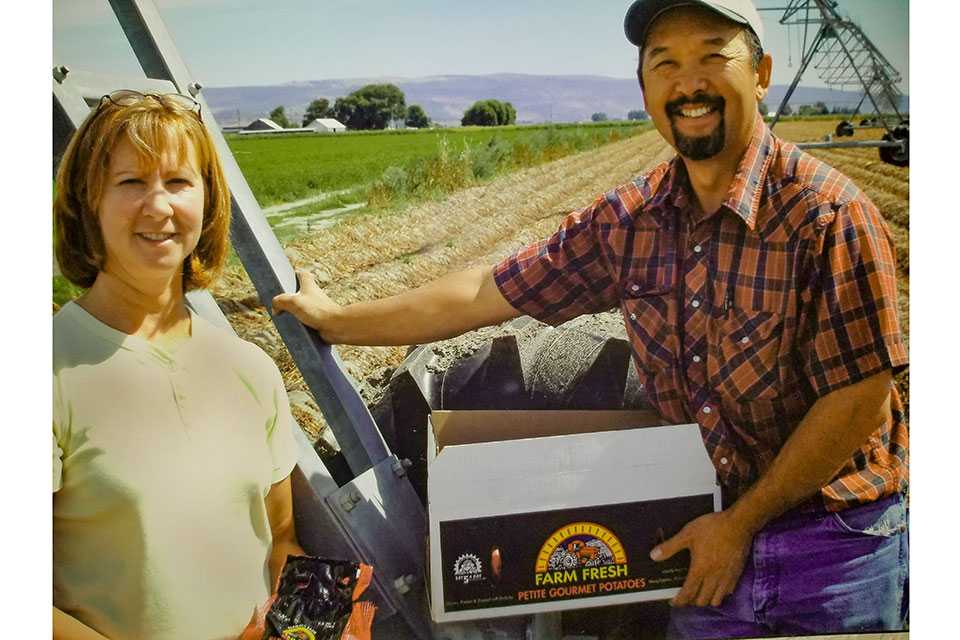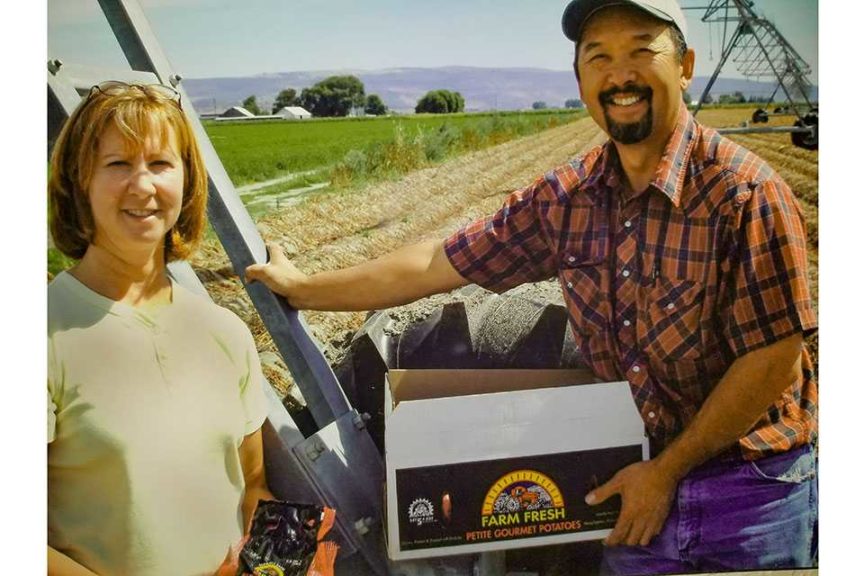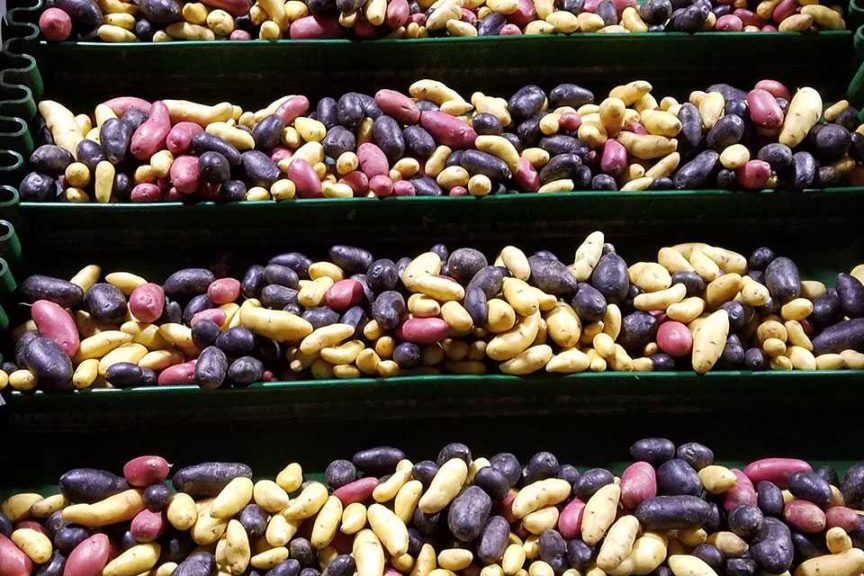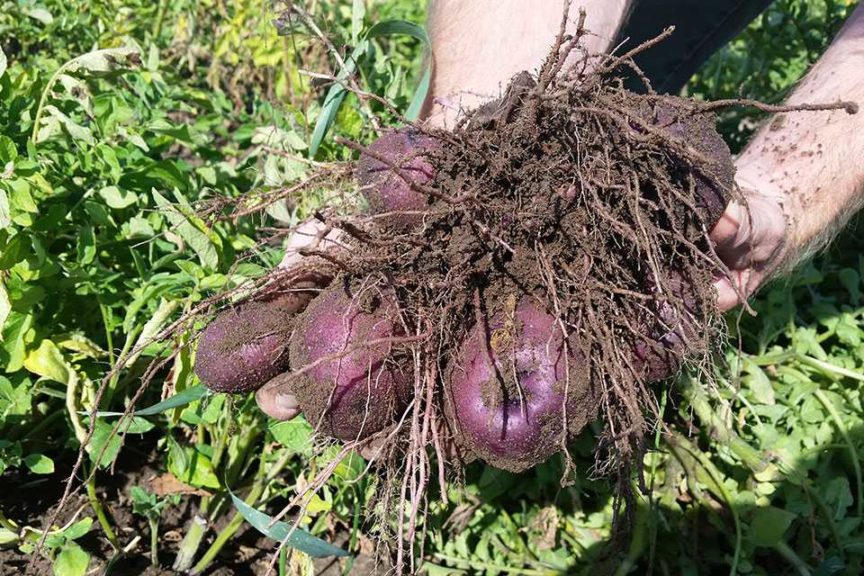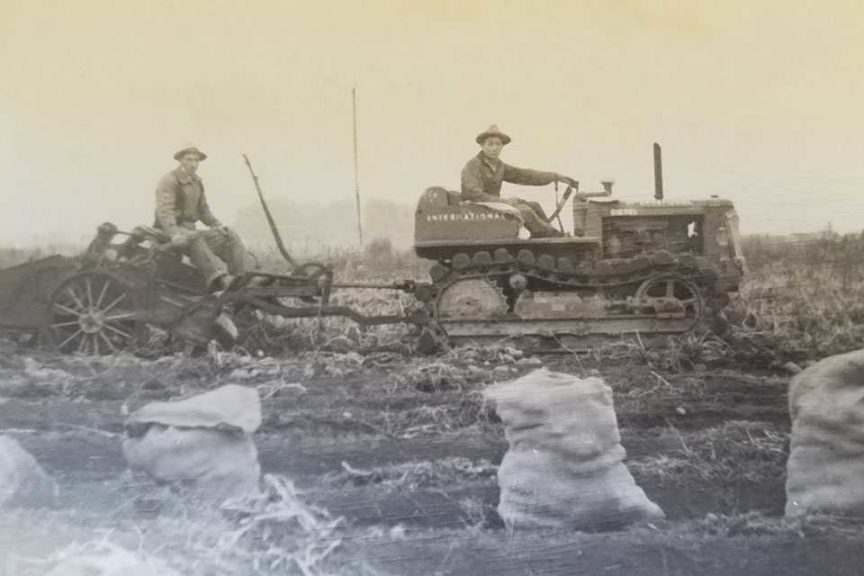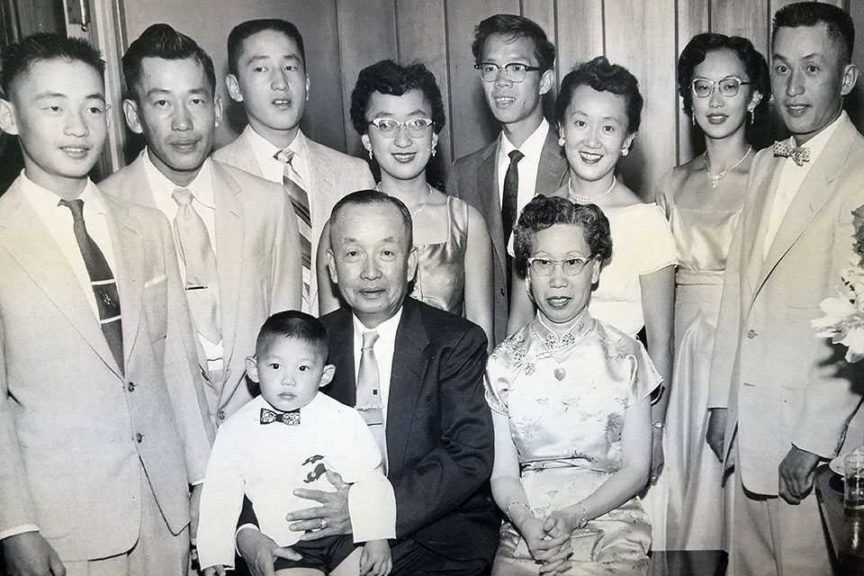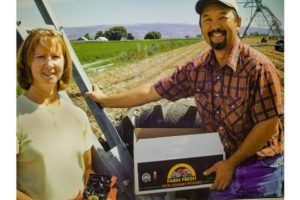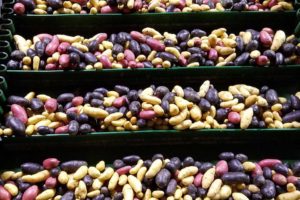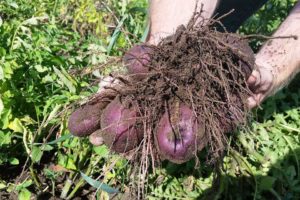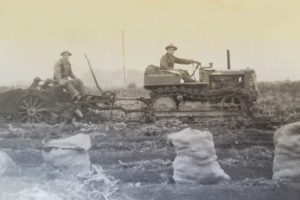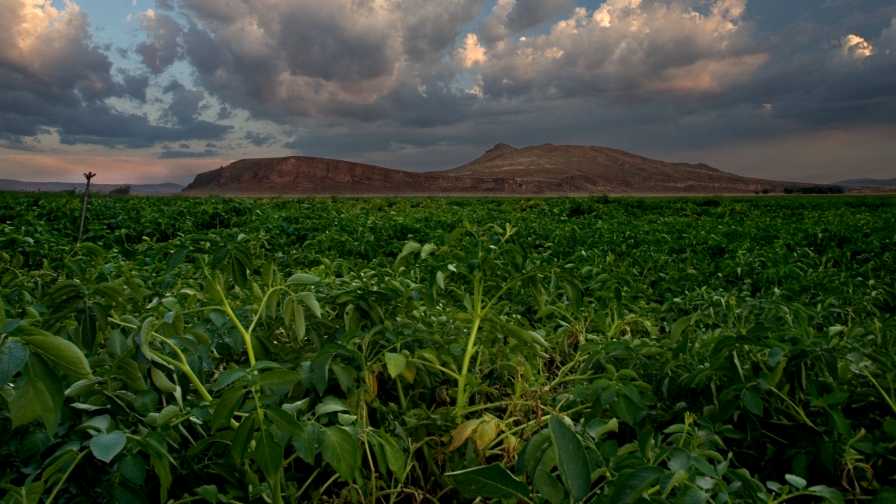Why It’s Time To Fall in Love with Potatoes
Despite the market turmoil this past year, Daniel Chin, co-owner of Chin Farms and Chin Family Farms Organic, is feeling optimistic. After a full year of families staying home and sharing a table together, Americans will continue to value that.
“Going forward, I think we’ll see a lot more people try to cook again. Like it used to be,” Chin says.
And potatoes will be a part of that.
After years of low-carb diets, he’s hopeful the tide may finally turn on attitudes toward potatoes.
“We need to keep reinforcing the idea that potatoes are good for you; they’re good value for you and your family,” Chin says. “Because people are struggling, and potatoes can go a long way.”
Chin works closely with Potatoes USA to get that message out. He’s grateful for the work the association does. For one, it conducts research on potatoes’ nutritional value and has a marketing campaign that allows anyone to download social media and print ads. They feature athletes trusting the healthy carbs in potatoes to stay fit and trim.
Potatoes USA also promotes that skin-on potatoes are a nutrient-dense vegetable with Vitamin C, potassium, complex carbs, and 3 grams of plant-based protein.
“They’re a reasonable product compared to some of the other products you buy. They’re a good, healthy, nutritious food.”
Getting this information to consumers requires a team approach. In addition to helping Potatoes USA spread the nutrition message, growers can work with their customers.
“We don’t have a zillion dollars to put into advertising to reach those consumers,” he says. “So, from the grower and shipper standpoint, I think we need to work with retailers to promote different products at the store level.”
Recruiting Grocery Stores to Work with Growers
A strong relationship with grocery stores is vital. Not just for promotional purposes, but also to protect your crop.
Chin worries all of this campaigning can be overturned if customers get to the store and find green potatoes. Green potato skin, caused by UV light exposure, not only looks unattractive, it changes the flavor and can potentially be dangerous. It can indicate a toxin, solanine.
So Chin has a passion for preventing his crops from turning green on grocery store shelves.
“I’ve always been an advocate to help reduce (green skins), and we’ve worked with retailers. We’ve made our packaging where it’s UV-light protected,” he says.
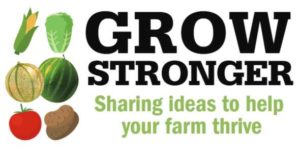
American Vegetable Grower’s GROW STRONGER initiative brings you positive stories from progressive growers filled with innovative solutions to help you grow a stronger future.
He’s worked with his customers extensively, coming up with different schemes to keep the potatoes looking and tasting their best.
One is to package them in a bag that screens UV lights with a black backing on it as opposed to having them in a simple poly bag.
He’s also added screens over store bins to cut down light exposure.
One of the easiest ways to prevent greening is to keep the number of potatoes out on the retail floor limited so they sell through quickly and are replenished with properly stored potatoes from the store’s warehouse.
Naturally, there are limits to what he can do. He does not have any control over retailers, and so he’s left with educating buyers with varying success.
Take a grocery store chain he works with. After having one buyer for years, Chin now works with a revolving door of buyers new to produce. So he starts from scratch each time. But it’s a battle worth fighting, he says.
Dealing with Production Issues
About 60% of Chin Farms’ acreage is dedicated to organic production, which he started 17 years ago. He says he’s in a unique locale that makes it easier to grow without conventional chemicals.
Located in the Klamath Basin, Chin Farms sits on both sides of the Oregon/California border. Its high elevation (4,100 feet above sea level) and cold winters keep most diseases and insects away.
“We don’t have much pest pressure in the summertime. Even in our conventional product, we don’t spray insecticides much,” Chin says.
But that doesn’t mean Chin doesn’t face some important organic production issues.
His No. 1 nemesis? Nematodes.
His best bet for controlling nematodes in his organic production is to rotate into non-nematode-infested fields. He says there just aren’t that many organic products made for nematode control.
Another issue he has is sprouting. He recently started using clove oil to great effect. And cold storage is highly effective in preventing the problem.
Finally, Chin is working on improving his soil health.
“In conventional growing, you can just put fertilizer on to get all the nutrients that the plant needs,” Chin says. “Organically, there’s not as many tools in the toolbox.”
Healthy soil, he points out, prevents a lot of issues, reducing the amount of spraying needed. So he began working in cover crops like field peas with his crop rotations.
“We grow field peas up — let them get a lot of good growth. Then before they mature, you actually bound them down into the ground, so you put that humus back in the ground,” he says.
The farm is currently rotating in a cover crop at least once every five years, though Chin would like to get it down to once every three.
He’s found such benefit from cover crops that he’s using them with his conventional ground as well.
At a Glance: Chin Family Farms Organic and Chin Farms
Founded: 1974 – Chin Farms (conventional crop operation)
- 1999 – Purchased Wong Potatoes, Inc. (wash, grade, size, package, and ship fresh market potatoes)
- 2014 – Chin Family Farms Organic, LLC (organic crops operation)
Owners: Dee Dee and Daniel Chin
Crops: Fresh market potatoes (reds, yellows, purples, fingerlings, russets — both conventional and organic), onions, garlic seed, alfalfa hay, wheat, barley, and organic hemp for oil
Location: Klamath Basin, on both sides of the Oregon/California border
Size: 2,800 acres of potatoes
Sectors: Organic and conventional retail; organic and conventional food service; processing (dog food, starch granules); and organic and conventional export (Taiwan, South Korea, Hong Kong, Philippines, Canada, and Mexico)
Daniel Chin: Why I Farm
Being a farmer has always been interesting to me because you always have a new adventure or job each day. From driving tractors to fixing equipment, there are many things to do. You have to be self-motivated and be able to work long hours when planting or harvest seasons roll around.
Yet the satisfaction of growing a crop and selling that crop is something that is hard to describe. Farming can be a very stressful job, because every year is different with the way Mother Nature gives us the weather to produce crops. Also, for most crops, we do not know the price we will receive until after we have the product ready for market.
This can be a big gamble. Sometimes it pays off, and sometimes you get stuck with the bills.
I believe the best way to reduce your risks is to have a market for your crop before you grow it, even if you do not have the final price. The key is to grow the best quality crop you can year in and year out, and customers will buy your product.





